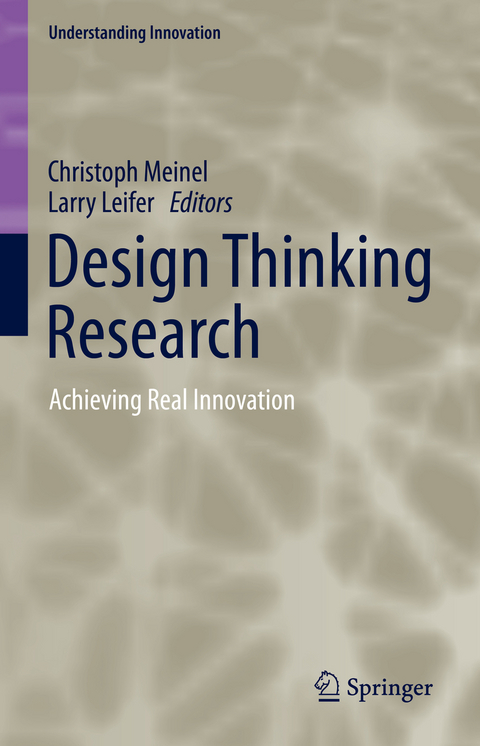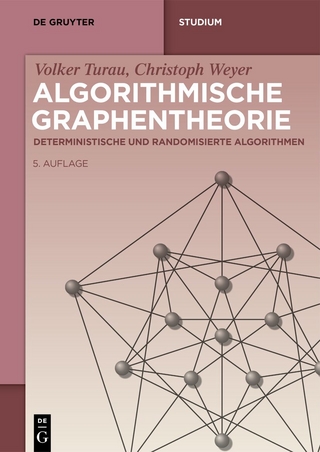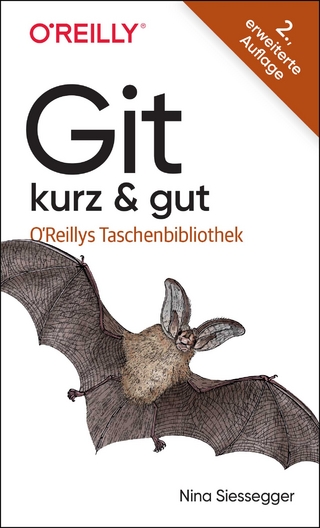
Design Thinking Research
Springer International Publishing (Verlag)
978-3-031-09296-1 (ISBN)
Extensive research conducted by the Hasso Plattner Design Thinking Research Program at Stanford University in Palo Alto, California, USA, and the Hasso Plattner Institute in Potsdam, Germany, has yielded valuable insights on why and how design thinking works. The participating researchers have identified metrics, developed models, and conducted studies, which are featured in this book, and in the previous volumes of this series.
This volume provides readers with tools to bridge the gap between research and practice in design thinking with varied real world examples. Several different approaches to design thinking are presented in this volume. Acquired frameworks are leveraged to understand design thinking team dynamics. The contributing authors lead the reader through new approaches and application fields and show that design thinking can tap the potential of digital technologies in a human-centered way. It also presents new ideas in neurodesign from Stanford University andthe Hasso Plattner Institute in Potsdam, inviting the reader to consider newly developed methods and how these insights can be applied to different domains.
Design thinking can be learned. It has a methodology that can be observed across multiple settings and accordingly, the reader can adopt new frameworks to modify and update existing practice. The research outcomes compiled in this book are intended to inform and provide inspiration for all those seeking to drive innovation - be they experienced design thinkers or newcomers.Professor Dr. Christoph Meinel is Director and CEO of the Hasso Plattner Institute for Digital Engineering gGmbH (HPI), Potsdam, Germany and a full professor for computer science and serves as department chair of Internet Technologies and Systems at HPI. He teaches at the HPI School of Design Thinking and is Vice Dean of the Digital Engineering Faculty of the University of Potsdam. In addition he is an honorary professor at the Department of Computer Sciences at Beijing University of Technology, guest professor at Shanghai University and concurrent professor at Nanjing University. Meinel is a member of acatech, the German "National Academy of Science and Engineering", and numerous scientific committees and supervisory boards. Together with Larry Leifer from Stanford University he is program director of the HPI-Stanford Design Thinking Research Program. Larry Leifer is professor of Mechanical Engineering at Stanford University, CA, USA. Dr. Leifer's engineering design thinking research is focused on instrumenting design teams to understand, support, and improve design practice and theory. Specific issues include: design-team research methodology, global team dynamics, innovation leadership, interaction design, design-for-wellbeing, and adaptive mechatronic systems. He has started many design initiatives at Stanford including the Smart-Product Design Program, Stanford-VA Rehabilitation Engineering Center, Stanford Learning Laboratory, and most recently the Center for Design Research (CDR).
Chapter 1. A Humanistic and Creative Philosophy of Design.- Part 1. Value Creation in Virtual Innovation Spaces.- Chapter 2. Interpersonal Trust Activity to Increase Team Creativity Outcome: An fNIRS Hyperscanning Approach.- Chapter 3. Dancing With Ambiguity Online: When Our Online Actions Cause Confusion.- Chapter 4. Design Thinking for Digital Transformation: Reconciling Theory and Practice.- Chapter 5. Experiences of Facilitating Virtual Design Thinking: Theoretical Reflections and Practical Implications.- Chapter 6. Accessibility of Linked-node Diagrams on Collaborative White-boards for Screen Reader Users: Challenges and Opportunities.- Part 2. Fostering Innovation Behavior and Co-evolution.- Chapter 7. A Pattern Language of an Exploratory Programming Workspace.- Chapter 8. Practice-to-research: Translating Company Phenomena into Empirical Research.- Chapter 9. Timely State Exposure for the Coevolution of Mental Models and Dynamic Systems.- Chapter 10. Designing for Value Creation: Principles, Methods and Case Insights from Embedding Designing-as-performance in Digital Health Education and Research.- Part 3. Problematizing Design Thinking as a Concept.- Chapter 11. Different Concepts of Human Needs - or: Is There a Tension Between the Design Thinking Focus on Needs and Aspirations to Radical Innovation?.- Chapter 12. Facets of Human-centered Design: The Evolution of Designing by, With, and for People.- Chapter 13. Decades of Alumni - Designing a Study on the Long-term Impact of Design Education.- Chapter 14. Different Types of Productive Thinking in Design: From Rational to Social Design Thinking.- Chapter 15. The Cultural Construction of Creative Problem Solving: A Critical Reflection on Creative Design Thinking, Teaching, and Learning.- Chapter 16. Design Thinking as a Catalyst and Support for Sustainability Solutions.
| Erscheinungsdatum | 09.09.2022 |
|---|---|
| Reihe/Serie | Understanding Innovation |
| Zusatzinfo | XXII, 340 p. 80 illus., 41 illus. in color. |
| Verlagsort | Cham |
| Sprache | englisch |
| Maße | 155 x 235 mm |
| Gewicht | 703 g |
| Themenwelt | Mathematik / Informatik ► Informatik ► Software Entwicklung |
| Mathematik / Informatik ► Mathematik ► Finanz- / Wirtschaftsmathematik | |
| Naturwissenschaften ► Biologie ► Humanbiologie | |
| Naturwissenschaften ► Biologie ► Zoologie | |
| Wirtschaft ► Allgemeines / Lexika | |
| Schlagworte | Collaborative design tools • creative collaboration • design thinking • Digital Health • Digital transformation • DTR • Hasso Plattner Institute • human-centered design • Human-Robot Interaction • Innovating creativity • IT Development • Multi team design • Neurodesign • Organizational Learning • School of design thinking • Social virtual reality • Stanford Design Thinking Research Program • Stanford D-School • team dynamics • Virtual design thinking |
| ISBN-10 | 3-031-09296-1 / 3031092961 |
| ISBN-13 | 978-3-031-09296-1 / 9783031092961 |
| Zustand | Neuware |
| Haben Sie eine Frage zum Produkt? |
aus dem Bereich


